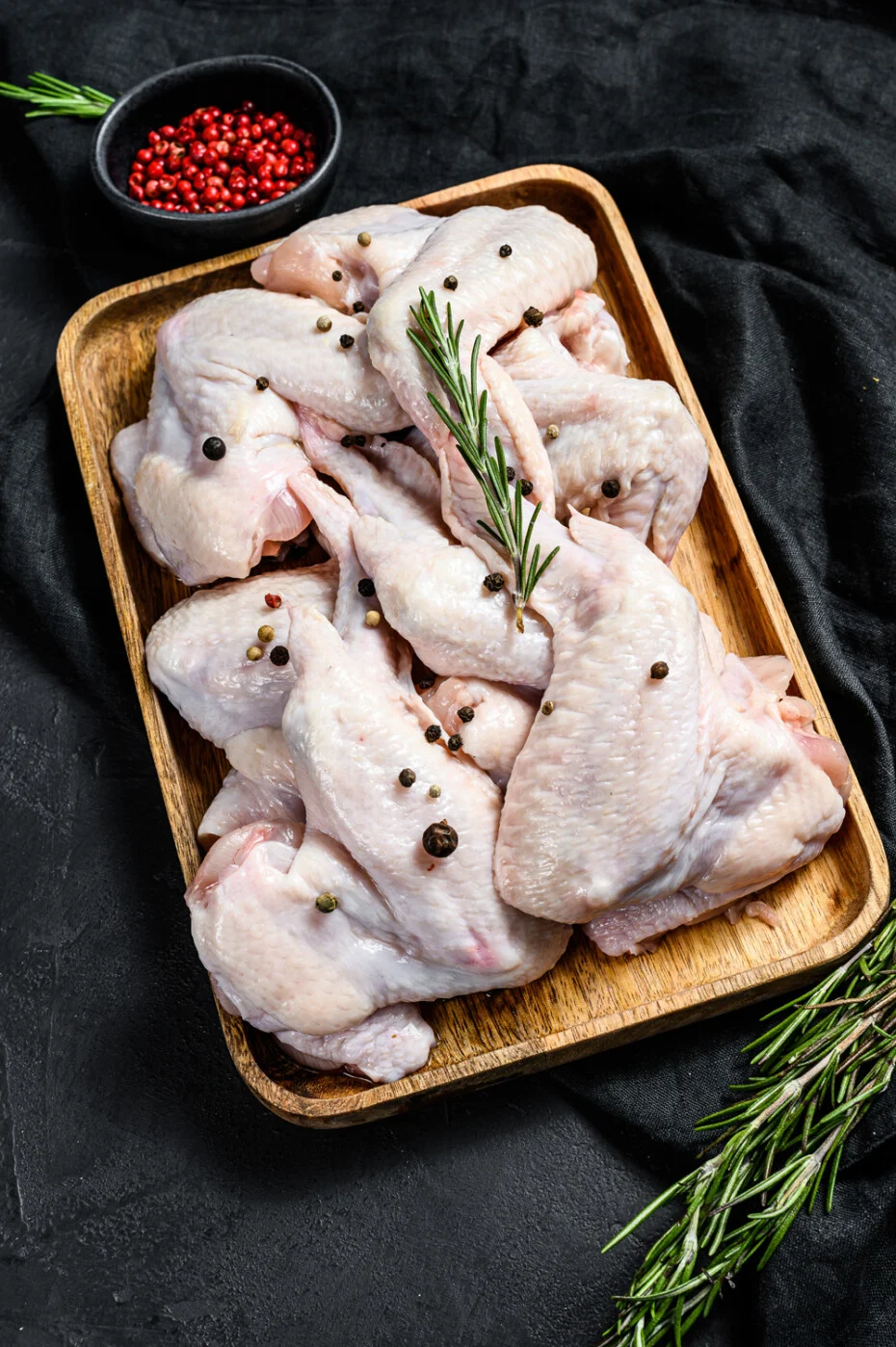Like most cuts of beef, that turkey you’ve got stored in the fridge or freezer will not last for all time.
Whether it is raw or cooked, stored correctly or incorrectly, expect your turkey to go bad at some point. The important thing is knowing how to tell your turkey is spoiled.
Contents
How To Store Turkey
In the same way, storage is essential to reheating turkey; storage is an important factor in the shelf life of a turkey. You can store your turkey in the fridge or freezer.
Refrigeration can improve a raw or cooked turkey’s shelf life. However, make sure you place the turkey in the bottom portion of the fridge on a shelf by itself.
If the turkey is placed next to other foods, its odor could transfer onto other foods. In addition to this, if you are refrigerating a raw turkey, put it into a container to prevent bird’s juices from contaminating the fridge and other foods in the refrigerator.
If you are refrigerating leftovers, make sure you store the cooked turkey in an airtight container or resealable bag within 1 hour.
The freezer is the best storage method for turkey if you intend to keep it for a long time.
Turkey has a life span of 6 months when stored in the refrigerator.
You can also buy a flash-frozen turkey and place it into the freezer as is.
Flash-frozen turkeys have a shelf life of 3 years, and flash freezing helps the turkey retain its flavor and texture.
If you are freezing cooked turkey, remove the meat from the bone before freezing it.
Place the turkey into a freezer-safe resealable bag. Remember to press as much air out of the turkey as you can.
What Happens if I Eat Bad Turkey
Not only is it unsafe to eat bad turkey, but your taste buds will be on fire in the wrong way.
Rotten turkey tastes and smells worst than rotten eggs.
Poultry may become tainted with bacteria while it is being processed or stored.
If you eat rotten turkey, it can be a threat to your health.
It’s no secret that meat harbors several bacteria and pathogens. In particular, turkey contains a pathogen called Clostridium perfringens.
Ingesting turkey tainted with this bacteria can lead to food poisoning.
Symptoms of food poisoning include nausea, headaches, vomiting, cramps, diarrhea, and abdominal pain.
Overall, eating bad turkey is not worth it. So you must make sure it is good before consuming it.
How To Tell if Turkey Is Bad
Knowing if your turkey is bad is detrimental to your health. Follow these guidelines to determine if your turkey is spoiled.
Smell
Fresh turkey has a mild odor that is reminiscent of chicken. However, if your turkey has a pungent smell, it is spoiled.
Rotten turkey may also smell like rotten eggs sulfur burps, or it may have a slightly gamey aroma. Either way, if you smell something unpleasant, it is best to throw the turkey away.
Color
You can also use eyes to detect if your bird is rotten. Fresh turkey meat has a pale white, light-pink color covered in cream-colored skin.
As the turkey ages and its freshness declines, its skin will change colors.
If the beautiful light pink, pale white skin turns grey, discard the turkey.
In addition to this, if the turkey’s color and skin are duller than when it was purchased, it is better to be safe than sorry and throw the turkey in the trash.
Texture
It’s often said your hands are the best kitchen utensils, and in this case, that is true.
Your fingers can detect changes in the turkey’s texture.
If the turkey skin is covered with a slimy film, when you touch it, throw it away.
Peppers are to spice as sliminess is to rotten turkey.
I know what you’re thinking; it’s only a little slime. I can wash the slime off the turkey and cook the bacteria away. This is not a wise idea.
First, even if you wash the turkey, it will not eliminate the slimy barrier covering the turkey.
Second, slime is an indicator of elevated levels of bacteria.
Even if you cook the turkey until an infrared thermometer registers 165°F, it could still make you sick.
Cooking the turkey will not destroy toxins in the meat and could lead to Salmonella.
Discard any turkey that has a slimy texture.
In addition to this, wash all utensils and surfaces, including your hands that come into contact with the raw turkey with hot soapy water.
How To Tell if Cooked Turkey Is Bad
Knowing if cooked turkey is bad is just as important as knowing if raw turkey is rotten.
Luckily the same rules apply for determining if your cooked turkey is spoiled.
Smell
Like raw turkey, your nose can tell you when your cooked turkey is rotten.
For example, if you prepare your turkey in advance and wish to reheat a whole turkey, it should smell like the spices and herbs you used to season it.
However, the second the seasoning scent fades away and you get a whiff of a putrid odor, the turkey is officially spoiled.
Additionally, cooked turkey can absorb other scents, so if it is doesn’t smell like seasoning or have a sour aroma, but you pick up a different scent, discard the turkey.
Texture
In the same way, raw turkey can become slimy when it’s rotten; cooked turkey can also become slimy when it is spoiled.
Bacteria can create slime, so it is best to toss it to prevent you and your loved ones from becoming sick.
Do not taste cooked turkey to confirm your suspicions, simply get rid of it.
In addition to this, wash all utensils and surfaces that came into contact with slimy turkey.
Color and Mold
If you notice your turkey turning darker than when it was cooked, it could be spoiled.
Whether it is green, grey, or yellow, do not eat turkey that has changed color.
Although mold is rare, it is still possible for a turkey to develop mold.
If your turkey retains a large amount of moisture, it may cause mold to grow, which is a tell-tale sign of spoilage. Discard the turkey if you notice mold.
Final Thoughts
We can all agree no one on the planet will enjoy eating a plate of spoiled turkey.
So it is crucial you know how to tell if turkey is bad.
You might also be interested in:
- How To Tell If Raw Chicken Is Bad
- How To Tell If Ground Turkey Is Bad
- How To Tell If Chicken Is Bad
- How To Tell If Steak Is Bad
- How To Tell If Ground Beef Is Bad
- How To Tell If Beef Is Bad

I have been smoking and grilling meat from an early age and enjoy sharing my knowledge and expertise through the hundreds of articles I have written about BBQ. I hope to make everyone’s BBQ journey that little bit easier.

